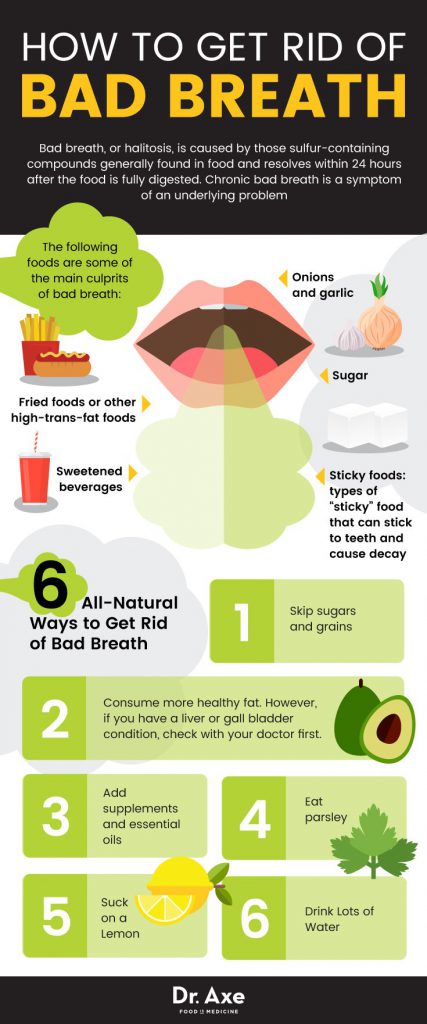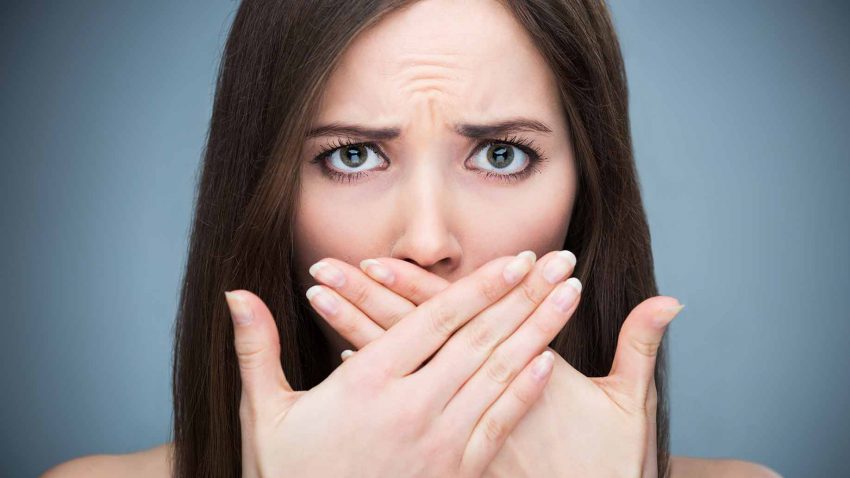If you’ve had people avoiding you when you’re talking to them, you most likely are suffering from bad breath.
Don’t worry, everyone has it at some point in their lives. It’s one of life’s most common annoyances. Thankfully, we can do something about it but first, you need to know where it comes from.
What causes bad breath?
Bad breath, also known as halitosis, starts with what you put in your mouth. Just had garlic for lunch? Or a late-morning latte? They may taste great but consider yourself warned.
Garlic and coffee may be the two main offenders but onions and spicy food can also bring on bad breath. The odours of these foods enter your bloodstream and head right to your lungs, each time you exhale.
Not to mention, the foods that are trapped in your mouth. We’re not talking about a little kale on your teeth. After a meal, any food particles that remain between your teeth, in your gums, or on your tongue can release odours into your breath. When the food decays, it sets off a chain of events leading to gum disease.
The list of offenders for bad breath is long, but the most common causes are tobacco, dry mouth, mouth infections, and dentures or braces. Poor oral health can also lead to the occurrence of bad breath. If you fail to brush or floss your teeth regularly, the particles left in your mouth can rot and cause bad odours.
This will lead to plaque build-up in the mouth, which causes an odour of its own. The plaque will harden, referred to as tartar which holds the bacteria responsible for gum irritation, leading to a mild form of gum disease called gingivitis. If left untreated, it can turn into periodontitis.
What can be done to prevent bad breath?
There are some quick and easy ways to banish bad breath. Just remember that the odour from what you eat sticks around until the food works its way completely out of your system. Here are some ways that we’d recommend you do:

- Clean your teeth: Brushing, flossing and rinsing can help to prevent plaque build-up in your mouth. If you can’t brush after a meal, rinse your mouth with water to loosen up and free those trapped bits.
- Clean your tongue: Bacteria on your tongue can contribute to bad breath. When you brush your teeth, remember to brush your tongue as well or use a tongue scraper. It actually makes a lot of difference!
- Gargle and rinse: Add an antiseptic mouthwash and a fluoride rinse to your daily routine to prevent tooth decay and kill bacteria that cause bad breath and plaque that can lead to gingivitis.
- Stay hydrated: If your bad breath is caused by weight loss, water can dilute the chemicals that are causing the odours and wash away the bacteria and food particles.
- Check in regularly: See your dentist often to maintain your oral health and ensure dentures or braces are fitted properly and cleaned (clean your dentures thoroughly each night).
- Toss the tobacco: When you stop smoking or using chewing tobacco, your breath will improve significantly.
- Have a candy handy: If you have issues with a dry mouth, keep a pack of sugar-free gum or candy with you. It helps to stimulate the production of saliva which keeps your mouth from drying out.
If bad breath is a side effect of taking a medication, discuss with a health care professional whether there are other options for medication that can be taken.
Alternatively, your dentist can prescribe special toothpaste and mouthwash that can improve the symptoms of bad breath if you are suffering from a serious case of bad breath.
